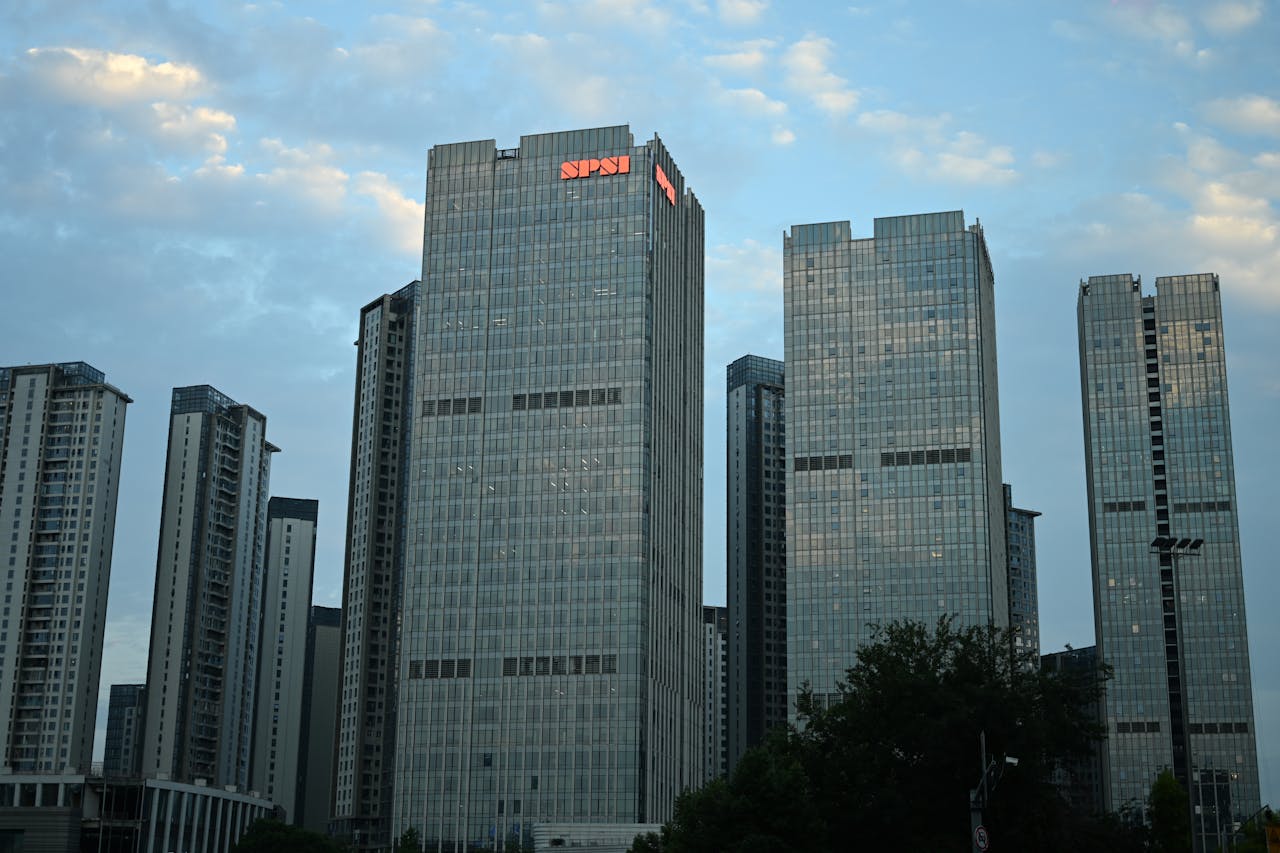Real estate management has evolved into a data-driven discipline where success depends on how efficiently companies manage properties, tenants, and financial performance.
As portfolios expand and operations grow more complex, manual systems no longer keep pace with industry demands. That’s where Yardi property management has reshaped the industry, bringing automation, integration, and precision to every level of real estate operations.
From leasing to accounting, maintenance to compliance, Yardi’s technology suite offers a complete ecosystem for real estate professionals. But what truly sets it apart is how it’s transforming the way real estate firms think, work, and grow.
The Evolution of Property Management Technology
A decade ago, property management largely depended on fragmented systems. Separate tools were being used for accounting, leasing, and maintenance tracking. Data silos slowed decisions, reports were inconsistent, and scaling required significant manpower.
The introduction of Yardi real estate software changed that. Instead of juggling multiple tools, Yardi created a unified platform that ties together every operational aspect of real estate management. With its Yardi Voyager property management system, businesses could centralize portfolios, automate reporting, and manage both residential and commercial assets with greater accuracy.
According to Deloitte’s 2024 Real Estate Outlook survey, 49% of large property firms are actively working towards modernizing their technology infrastructure, moving past the old legacy systems. This shift illustrates how platforms like Yardi have become critical for data consistency and long-term scalability.
A Closer Look at Yardi Property Management’s Core Strengths
What makes Yardi property management so impactful in real estate is the balance between usability, adaptability, and insight it offers. Here’s how the system redefines key aspects of real estate operations.
-
In-Depth Portfolio Oversight
Whether you’re managing multifamily housing, office spaces, or retail properties, Yardi consolidates operations into a single dashboard. Property managers can view lease expirations, monitor rent collections, and track maintenance costs across multiple locations instantly.
This single-source visibility cuts down administrative effort and prevents costly oversights. According to internal Yardi client data, firms using its centralized dashboard report fewer administrative errors as compared to previous systems used.
-
Smart Financial Management
Financial accuracy is the backbone of any property portfolio. Yardi’s built-in accounting modules simplify complex financial processes, from accounts payable and receivable to forecasting and budgeting.
By integrating with Yardi real estate software, companies can produce instant financial reports, reconcile accounts automatically, and eliminate redundant data entry. Property owners gain confidence that every transaction aligns with both corporate and regulatory standards.
-
Seamless Integration for All Property Types
A key advantage of Yardi’s platform is its adaptability. Whether a company manages mixed-use developments, retail centers, or residential complexes, Yardi offers tailored solutions through Yardi commercial property solutions and Yardi residential property tools.
This versatility allows firms to operate diverse portfolios without needing multiple platforms. A single login can manage tenant screening for apartments, automate lease renewals for offices, and monitor maintenance for industrial spaces.
-
Improved Tenant and Owner Experiences
The digital experience of tenants and owners has become central to modern property management. Yardi’s tenant and owner portals allow for online rent payments, maintenance requests, and document access.
In a survey conducted by Buildium, 76% of tenants said they prefer property managers who offer digital payment and communication tools. With Yardi, companies can meet this expectation effortlessly, improving satisfaction and retention rates while reducing administrative back-and-forth.
-
Compliance and Risk Reduction
Regulatory oversight in real estate is more complex than ever, particularly in commercial and multifamily sectors. Yardi property management automates compliance tracking, ensuring lease terms, insurance certificates, and inspections stay up to date.
Automated alerts notify staff before compliance deadlines, reducing exposure to financial penalties or legal disputes. This structured system of accountability is one reason many institutional investors now require Yardi-based compliance tracking for their managed portfolios.

The Broader Impact on Real Estate Operations
Beyond day-to-day efficiencies, the impact of Yardi extends to strategic business growth. Data analytics, predictive insights, and automated workflows open new possibilities for firms to scale without proportionate increases in staff or resources.
Data-Driven Decision Making
Real estate management generates vast amounts of data: rent rolls, occupancy trends, maintenance histories, and more. With Yardi’s analytics engine, this data becomes an asset rather than a burden.
Managers can compare historical performance, identify underperforming assets, and forecast future cash flows with remarkable precision. For example, a firm managing 5,000 units can track seasonal vacancy patterns to plan marketing spend, maintenance scheduling, or pricing adjustments proactively.
Greater Collaboration Across Teams
The unified database also fosters cross-departmental collaboration. Leasing, finance, and maintenance teams can access consistent information without dependency on manual updates. This eliminates redundancies and promotes faster decisions, particularly in large organizations where multiple departments share property data.
Sustainability and Efficiency Initiatives
Sustainability is no longer optional in property management. Yardi supports environmental goals through modules that track energy consumption, waste reduction, and building efficiency.
A recent study by CBRE found that energy-efficient buildings report a significant reduction in operating costs. By integrating sustainability metrics directly into the system, Yardi helps firms monitor performance, achieve green certifications, and communicate results transparently to stakeholders.
Adapting Yardi to Residential and Commercial Needs
The needs of residential and commercial managers differ significantly, but property management with Yardi helps cater to both with precision.
- For residential portfolios, tools like online rent collection, automated leasing, and resident portals simplify tenant interactions and reduce overhead.
- For commercial portfolios, the focus shifts to lease abstraction, common area maintenance (CAM) reconciliation, and multi-location expense tracking. All of which are handled effortlessly through Yardi commercial property solutions.
By offering scalable modules, Yardi helps real estate firms to customize their setup according to their property mix, staffing model, and business goals.
Why Yardi Property Management Leads the Industry
While many software platforms compete in the real estate technology space, Yardi stands apart for its depth of functionality and long-standing credibility. Founded in 1984, Yardi has spent decades refining its platform to meet the ever-evolving needs of landlords, investors, and managers.
Today, over 12,000 businesses worldwide rely on Yardi systems. Its clients range from local property managers to Fortune 500 investment firms, underscoring the platform’s adaptability and reliability.
The software’s intuitive design also contributes to its popularity. Staff can be trained quickly, and updates roll out seamlessly, keeping users compliant and up to date with market standards.
The Shift Toward Centralized Real Estate Ecosystems
As the industry grows more competitive, real estate firms are looking for technology that not only simplifies tasks but also creates strategic advantages. The rise of Yardi property management represents a larger trend toward centralized digital ecosystems where financial control, operational efficiency, and tenant satisfaction converge.
In many cases, these efficiencies lead to measurable growth. Firms adopting integrated management systems report higher profitability through cost savings, faster turnaround times, and improved data accuracy.
With this shift, Yardi’s influence is no longer limited to operations; it’s shaping how the entire industry plans for the future.
Conclusion
The real estate industry is entering an era defined by intelligence, integration, and innovation. Yardi property management stands at the intersection of all three, combining advanced technology with practical usability to redefine how portfolios are managed and optimized.
From Yardi Voyager property management for large-scale operations to Yardi residential property tools and Yardi commercial property solutions for specialized needs, the platform adapts to the diverse realities of modern real estate.
Its impact goes far beyond automation. Yardi transforms how teams collaborate, how owners make decisions, and how residents experience property management. For an industry built on precision and trust, that transformation is non-negotiable.




